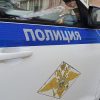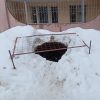From the air, the peninsula of Palmetto Point – fringed by aquamarine water and pink-hued sand – looks like a developer’s dream.
To local residents it’s the scene of childhood memories and balmy afternoons spent picking seagrapes and ambling among the sand dunes – a landscape many fear could soon be lost to them forever.
Three years after Barbuda was devastated by Hurricane Irma, the tiny Caribbean isle is the scene of a bitter dispute that has pitted islanders against foreign developers who plan to build a US $2bn luxury resort project.
A group of investors, including John Paul Dejoria, the billionaire entrepreneur behind Paul Mitchell hair products, have been given a 99-year lease to create hundreds of deluxe private homes and a golf course for the scheme named Peace, Love and Happiness (PLH).
Supporters see the development as a vital economic stimulus that has already created dozens of jobs for an island still recovering from the September 2017 hurricane. Critics say it will encroach on a national park, damaging one of the world’s largest nesting sites for the magnificent frigate bird and endangered wildlife.
Developers say their concept was devised following a public vote of approval from the community in 2016. Opponents say that they were not told where exactly the development would be and that the detailed masterplan was drafted shortly after Irma when Barbuda’s entire 1,600 population was forcibly evacuated to Antigua – a claim both central government and PLH deny.
Work is already well underway at the site, where mangroves and other indigenous plants have been removed for replanting elsewhere. Around 40 of the 395 residences advertised on the firm’s website have already been sold, and construction has begun on an international runway to facilitate private jets.
Gesturing towards mangroves and palms which islanders traditionally used to make fish pots and thatch roofs, local marine biologist John Mussington said the area’s wetlands are safeguarded by a global treaty.
“Everything you see here is critical wetland and natural beach vegetation which are protected by the Ramsar Convention,” he said.
“The West Indian whistling duck – which is critically endangered – is dependent on areas like this to reproduce. Five thousand magnificent frigate birds come to our lagoon each nesting season. And for the endemic Barbuda warbler, this place is critical to its survival. These wetlands are crucial to our coral reef health and our marine resources.”
On Wednesday, the Global Legal Action Network (GLAN) called for an international investigation into the destruction of Ramsar-listed habitat. GLAN said it had sent evidence including expert scientific reports to the Ramsar Secretariat demanding urgent intervention.
Barbuda fears land rights loss in bid to spread tourism from Antigua
Read more
GLAN spokesman Dr Tomaso Ferrando told the Guardian: “Such is the scale of alteration to this habitat we believe an international advisory mission is needed to make an urgent assessment on the changes already underway and avoid further degradation.”
The project is unfolding against the backdrop of a bitter ongoing row between Barbuda and big sister Antigua over the central government’s reversal of a centuries-old system of communal land ownership.
Historically, all land on Barbuda was owned communally, and land parcels could not be bought and sold. The practice was codified into law in 2007. New legislation in 2017 introduced the freehold sale of land but remains the subject of a court battle. In September, the Eastern Caribbean court of appeal granted campaigners the right to take the case to London’s Privy Council, the country’s court of last resort.
Many Barbudans are still furious over what they view as the theft of their birthright, and the row has even triggered calls for secession from Antigua.
“The government are trying to brainwash us by saying they are helping us; all they want is our land,” said resident and campaigner, Mackenzie Frank.
Prime minister Gaston Browne’s government has been vociferous in its response, pointing out that central government pays the bulk of Barbudans’ wages (many are employed by the civil service), repeatedly likening the smaller island to a “welfare state” and its 1,200 inhabitants as “imbeciles”.
Earlier this year the Barbuda Council, which manages the isle’s internal affairs, attempted to halt construction, citing damage to habitats of protected flora and fauna, among other things.
“The area being developed is very sensitive. We have reached out to PLH in the past and asked them to stop all work and they refused,” said council chair Calsey Beazer-Joseph. “We had hoped to negotiate with them but they have now damaged so much we are no longer interested.”
Council member Jackie Frank said no financial benefits can offset the “environmental destruction”.
“The area was pristine and beautiful last time I was there picking grapes,” said Frank, who fears that removing the dunes will put islanders at risk. “My fear is that they will rip up too much and there will be no way back.”
The face of the island is already changing, said fisherman Devon Warner.
“The development will have a significant impact on our traditions and cultures which date back as long as I can remember. The way we use our land will change, along with the freedoms we have always enjoyed as parts of Barbuda will be off limits to us,” he said.
Across the island, fallow deer, wild boars and donkeys still roam free. Small scale farming and tourism help some eke out a living but meaningful employment opportunities can be elusive.
“When I was in grade one, there were 42 kids in my class. By the time I reached fifth form, I was the only one left – the vast majority had moved away,” said the development’s supervisor Abishur Thomas.
Employed by PLH since 2017, Thomas said the company pays higher wages than anywhere else on the island, and that its 70-plus locally-employed Barbudans have access to free training courses too. “There are some who want Barbuda to be one giant nature reserve. What this project offers us is real empowerment.”
Delorjia did not respond to a request for comment, but a PLH spokesman said the company is replanting thousands of native plants which will cover almost half of the project’s landmass.
The site was chosen on account of its “natural beauty”, he said, “but for decades it had been degraded, excessively mined for sand, and had waste from Irma dumped on it”.
The “low density” project aims to attract high-net worth, part-time residents who will boost Barbuda’s economy, which has taken an additional battering from the Covid-19 pandemic, the spokesman said.
“Our environmental impact study was done by an established, internationally recognised scientist. We are yet to see credible science that contradicts what it has outlined.”
That’s of little consolation to Mussington. “For Barbudans, this is our life; we have a deep connection to our land,” he says, gazing out over the shrubby, windswept landscape.
“They can talk about economic opportunities but those opportunities won’t belong to us. I own 62sq miles of land – and every Barbudan can say the same thing. We’re being asked to trade all that for a job that will belong to someone else,” he says, adding: “Every day feels like a fight for our survival.”























































Свежие комментарии